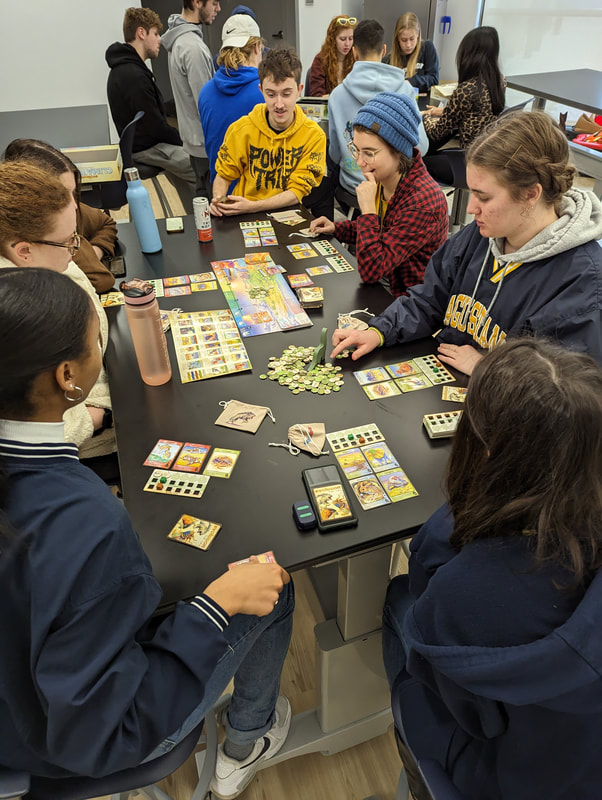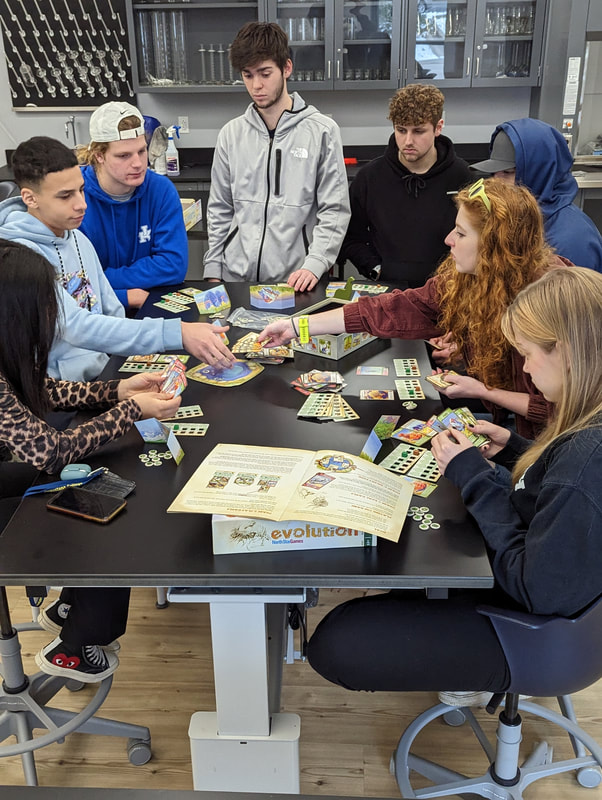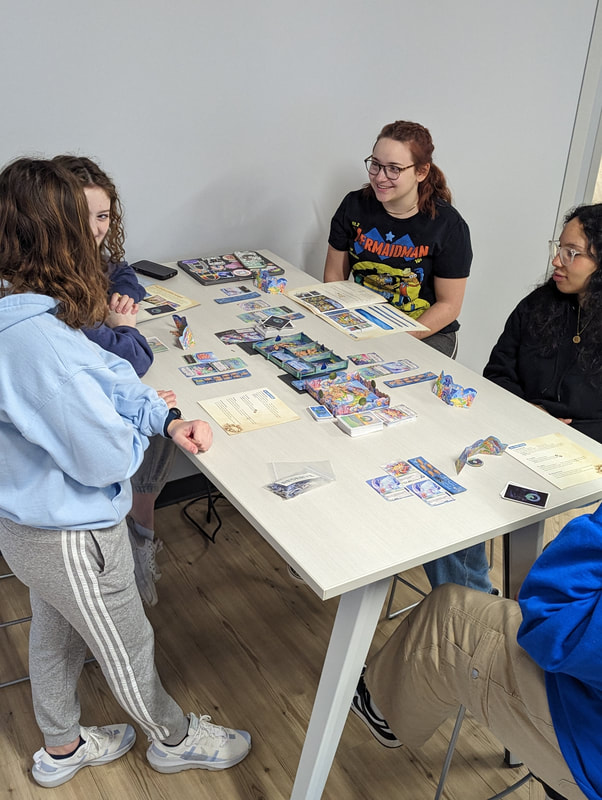|
|
Environmental Studies + Lab (ENVR 100/ 100L)
This course introduces our Environmental program majors (and some outside of the major) to the fundamentals of ecology in environmental studies. Environmental ecological concepts are explained through the principals of ecosystem services. The lab requires students to formulate a research project based on the ecosystem services discussed in lecture and develop a presentation either following traditional scientific conference style or an educational science communication platform to convey their results. |
|
Variations and conservation (ENVR 150 | J-term)
This course introduces the fundamentals population genetics (pop gen) and the conservation of biodiversity to non majors as an alternative course to satisfy a natural sciences gen-ed requirement. Pop gen concepts are presented through an array of hands-on activities, such as board games that utilize natural selection and evolution to alter populations of imaginary species, among other interactive assignments. There is also an experiential learning component that allows students to work with real genetic data to recreate, reanalyze, and present published research as a way for students to gain exposure to scientific data and literature in the field. |
Additional courses taught:
Molecular genetics (BIOL 375 | J-term)
This course is a Senior Inquiry course where students undertake a research project that integrates genetic methods to answer ecological questions. Students get the opportunity to learn project design, DNA extract and library preparation, how to use a DNA sequencer (Illumina MiniSeq), and bioinformatic analyses. Students write up their findings in manuscript-like draft and present their findings to the class and department colleagues.
Genetics (BIOL 250)
The study of genetics can be divided into three general areas: 1) the molecular nature of gene structure, 2) classical Mendelian genetics and inheritance patterns, and 3) population genetics, which is the study of allele frequency distribution and their change over time. In this course, students will follow this general outline to cover the broad field of genetics. Topics include structure and function of chromatin, DNA replication, gene expression and regulation, gene mutations, and patterns of inheritance (Mendelian and non-Mendelian genetics).
Courses to come:
Molecular genetics (BIOL 375 | J-term)
This course is a Senior Inquiry course where students undertake a research project that integrates genetic methods to answer ecological questions. Students get the opportunity to learn project design, DNA extract and library preparation, how to use a DNA sequencer (Illumina MiniSeq), and bioinformatic analyses. Students write up their findings in manuscript-like draft and present their findings to the class and department colleagues.
Genetics (BIOL 250)
The study of genetics can be divided into three general areas: 1) the molecular nature of gene structure, 2) classical Mendelian genetics and inheritance patterns, and 3) population genetics, which is the study of allele frequency distribution and their change over time. In this course, students will follow this general outline to cover the broad field of genetics. Topics include structure and function of chromatin, DNA replication, gene expression and regulation, gene mutations, and patterns of inheritance (Mendelian and non-Mendelian genetics).
Courses to come:
- Molecules to cells (BIOL 130)
- Organisms to ecosystems (BIOL 140)



